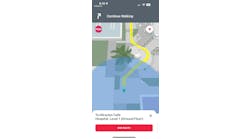Minneapolis-based Allina Health recently launched a mobile app called Cancer Connection with a symptom and drainage tracker that can help doctors identify patterns and trends with the disease, a curated learning library, a custom to-do list and a notepad for patients to prepare questions prior to appointments. Badrinath Konety, M.D., president of the Allina Health Cancer Institute, recently spoke with Healthcare Innovation about how this new app is helping breast cancer patients along their journey.
Healthcare Innovation: I was looking at Allina’s website and it looks like it has a series of apps that it has developed internally for patients. Is that part of the organizational strategy — to create its own targeted apps for specific patient populations?
Konety: Yes, to some degree, because it's been successful. We have a very nice mother-and- babies app that works really well. And our heart group has an app. Patients find it helpful, so we thought, let's look at cancer. We did a build-vs.-buy evaluation, and there's not a lot out there. I went on the app store to see what's in there for cancer apps, and I didn't find anything that is backed by any major institution. Maybe they have internal ones but not something to be downloaded. Some of them deal with segments of care such as support group information, but we wanted to put something together that's more comprehensive.
HCI: With these other apps, has Allina had a good experience with patient activation and getting patients to download them and actually use them?
Konety: Yes, when we saw those getting getting traction, it encouraged us to expand on that. We actually did some focus group interviews with our cancer patients and they gave us some input to say whether they would welcome such a thing, but also, what do they need it to do.
HCI: With that feedback, did your team narrow down the features that you wanted to include?
Konety: Yes. Most patients wanted educational content that was relevant to their cancer type. They wanted the ability to message a provider, although we have not incorporated that yet. They wanted to schedule and conduct visits. They wanted a personalized care plan. We have also added goal setting and medication tracking. Clearly educational content was one of the top issues. In order to facilitate that, we collaborate with Wolters Kluwer to use their patient education tool that we use in our regular offerings with our online patient education that's integrated into Epic.
HCI: Is there a need to get information from Epic into the app or send data to Epic from it?
Konety: It is not connected to Epic now. In a future version, yes, we would hope to do that, because there are certain things it would be helpful for. For example, we have a symptom tracker, and a drainage tracker, so oftentimes when patients are sent home with a catheter or something, they have to monitor the output. It would be nice to get that information put into their chart that providers could have access to the next morning. Instead of the patient having to make a phone call, somebody could keep track of these things and maybe other things eventually, whether it's blood pressure or other vital sign monitoring, if it's integrated into the medical record, it becomes easier to track it, document it and so forth. But we're not there yet.
HCI: You have started with breast cancer, but might there be customized versions for other types of cancer?
Konety: Absolutely. The reason we picked breast cancer is because not only is it a very common cancer in general, but that is the biggest chunk of our patient population. We have a large breast cancer patient population, and they're very media-savvy. They have a great need and are very active users. So we thought we will try to address their needs first and conduct a beta where we get their feedback, and make any changes to really fine-tune this before we start going to the other cancers.
HCI: This is available in Apple’s App Store and Google’s Play Store. Could someone get value from downloading it if even if they are not an Allina patient?
Konety: I don't see why not. There's a lot of content including these trackers, that you can use, but also the educational information that's pretty sophisticated.
HCI: You mentioned fine-tuning the app and perhaps moving on to build apps for other types of cancer. We also spoke about connecting to Epic and maybe getting more clinical data for monitoring. Anything else that you want to do in the future with this?
Konety: Yes. One of the things we're looking to add is a caregiver view so that caregivers can use the app. Caregivers have many things to track so that would be helpful. Is there a way to add a messaging function? It may not be direct, but is there a way to have quicker notifications? Can the appointment scheduling function be integrated into this? We already have automated scheduling, but you have to go into the portal.
HCI: Will you be following the usage and feedback from patients and clinicians about the utility of the app?
Konety: Yes. So far, we've had about 200 downloads in about three weeks. Clearly, there's growing interest, and we haven't really made a big marketing splash yet.


